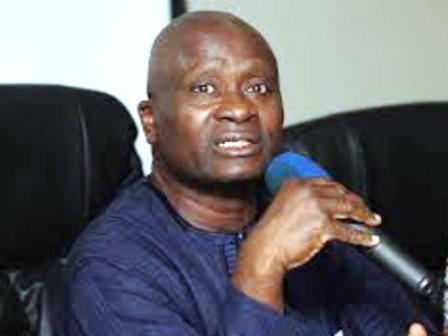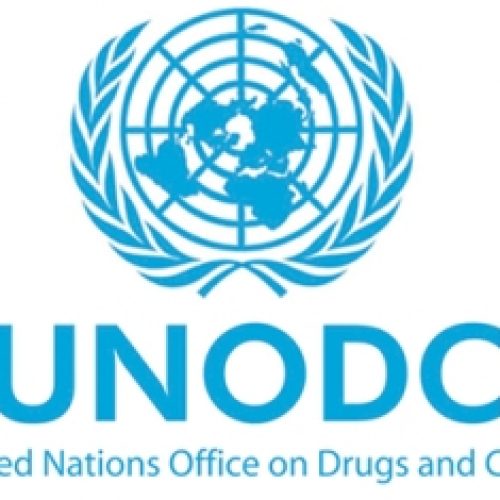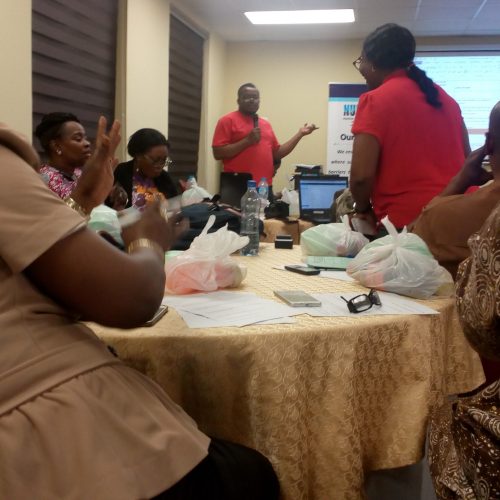Why Nigeria must invest in local vaccine production – Lagos Health Commissioner

Dr. Jide Idris
The Lagos State Commissioner for Health, Dr Jide Idris said Nigeria must pay attention to local vaccine production to be able to respond to its own vaccine-preventable diseases.
He made the remark at the 53rd Annual Scientific Conference organised by the Association of Medical Laboratory Scientists of Nigeria, Lagos State Chapter in Lagos with a theme: “Local Vaccine Production in Nigeria, Benefits, Challenges and Solutions.”
Idris described vaccines as on the cornerstone of any public health programme of any country. According to him, this is due to the fact that a fundamental provision and acceptance of governments’ health care programme believed more in prevention than treatment, which prompted investment in vaccines.
“Vaccines aim to prevent rather than treat diseases, it is only through the development of vaccines that diseases such as smallpox have been eradicated and likes of poliomyelitis is on the verge of elimination.
“Africa is most vulnerable to outbreaks as evidenced by the flu pandemic of 2009 and the recent Ebola outbreak. Without African vaccine manufacturing capacity, Africa will never be able to respond to its own vaccine-preventable diseases and will remain vulnerable.
“In addition to manufacturing, local development of vaccines is critical, if we are to attain the aims of tackling our own regions’ diseases such as HIV, malaria and tuberculosis.
“Vaccine development and manufacturing takes place in more developed areas of the world, such as western countries, or in countries with historically large manufacturing bases such as Asia.
“However, the evidence shows that Africa consumes a large part of the world’s volume of vaccines, but contributes little volume in terms of development or production,” he said.
The Commissioner said there was growing demand for vaccines as seen in the demographic trend, unmet needs, revitalisation of the National Immunisation programme, polio and measles campaigns.
According to him, if the demand is not met, it will lead to increasing dependency on foreign manufacturers and suppliers, higher financial implication.
“Nigeria uses up to 169 million doses of vaccines annually, a figure, which is expected to increase to 210 million doses by 2020.
“The role of UNICEF is not surprising seeing as majority of vaccine preventable diseases occur in childhood and cause significant levels of morbidity and mortality,” he said.
He called on governments, pharmaceutical companies and International organisations to collaborate, to help improve integration and quality in vaccine production.
In his speech, the event’s guest speaker, Prof. Oyewale Tomori, a Virologist, attributed the reasons for incomplete vaccinations in Nigeria to lack of knowledge, mistrust, family reasons, fear and myths.
Tomori, the former Vice-Chancellor, Redeemers University, Ogun State, said governments and health practitioners should be concerned about rural dwellers because most of them were not aware of vaccines.
According to him, there should be more production of local vaccines in Nigeria because vaccines help to prevent or avoid diseases.
“Through vaccination, we prevent disease transmission and protect man and animals, especially in hostile environment from doing business.
Also speaking, Mrs Blessing Adakole, Chairperson of the conference, said that the association intends to resurrect vaccine production in Nigeria.
She said this was the main reason for collaborating with some private organisations and Lagos State government to set up surveillance laboratory and a local vaccine production process.
“We have two years to establish the vaccine production because we have done our market survey, sustainability and other necessary things. One of the major challenges of local vaccine production which is affecting our health system is unpreparedness.
“Our association is ready for the production, with some private organisations, governments which will result to win-win opportunities for people in the country.
Prof. Oluyemi Akinloye, a professor of clinical chemistry and molecular diagnosis and Prof. Sunday Omilabu, a virologist, also called for collaboration among medical laboratory scientists, private organisations and government in the provision of modern vaccines in the country.
About author
You might also like
UNODC organizes conference on regional drug enforcement cooperation
The Regional Office of the United Nations Office on Drugs and Crime (UNODC) begins a 2-day “Conference on supporting the implementation of the ECOWAS Drug Action Plan through Effective Regional
Chevron shines at NIPS, Abuja
• Carts away two Oil/Gas industry awards Chevron Nigeria Limited, (CNL), operator of the joint venture between the Nigerian National Petroleum Corporation (NNPC) – NNPC/CNL JV – received a resounding
Lagos moves to domesticate Task-Shifting, Sharing of health services
• Health professionals work together to draft policy In its usual quest for excellence and efficiency in its health system, the Lagos State Ministry of Health with its consulting team






0 Comments
No Comments Yet!
You can be first to comment this post!